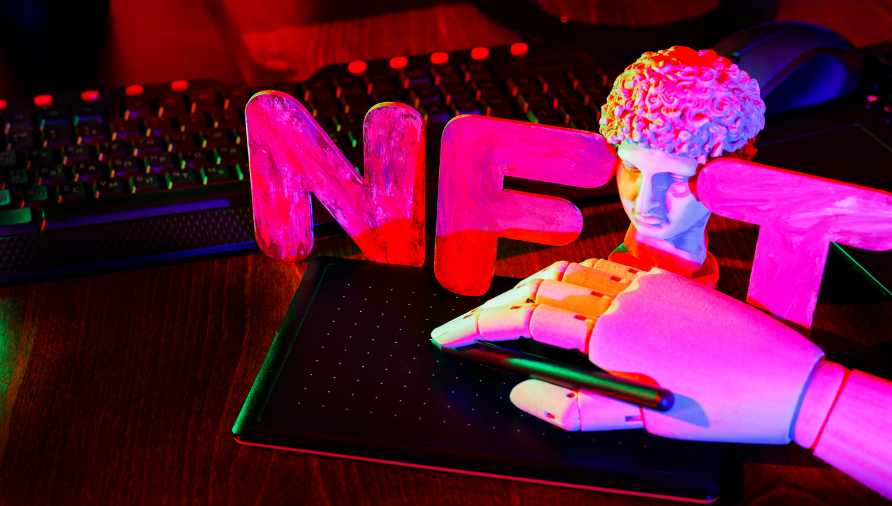Whether you are looking to create your own NFT for sale, or are looking to purchase NFTs for investment, you should know about copyright and trademark laws that may apply to the NFT. Generally speaking, you need to be sure you have legal rights to sell anything that you are planning on uploading to your NFT.
Many individuals wrongly assume that if they buy an NFT, they will have the right to the digital images or artwork represented. But selling an NFT does not necessarily convey to the buyer the inherent copyright of the existing work, which remains in the hands of the creators until he decides to sell it. Therefore, the only derived works that are likely are those that are associated with actual tokens, and not the tokens existing on the blockchain.
NFTs are not an unauthorized copy or derivative of a work underlying it and therefore are not subject to claims for copyright infringement against another work.
According to US copyright law, the copyright owner (absent permission) is the only person who has the power to convert an original work to NFT. An NFT can't infringe a copyrighted work, except when altered so as to convey new expression, meaning, or information, which would qualify it for the Fair Use Doctrine.
Copyright law does not grant NFT owners any rights, unless creators have taken affirmative steps to ensure they have -- ideally, executing standard, formal copyright authorizations for works linked to an NFT.

For the same reason a musician would need permission to sample or remix somebody's music and begin selling it as his or her own, the creator of the NFT will need permission from the copyright owner of the work they are putting in an NFT and offering for sale. For someone else to legitimately re-invent this song as an NFT, they would have to make significant changes to it to be allowed under the copyright laws fair use doctrine -- such as a 10-second sampling inside a separate, original piece by the artist re-inventing an NFT.
Because copyright infringement is strict liability, even NFT owners who create copies of stolen art may be held responsible for the infringement, even if the NFT creators had misled them to think that they had a proper license.
An NFT creator may engage in false advertising, suggesting to NFT owners that they would get rights along with art stolen from artists.
Some NFTs cause copyright problems by using art stolen from artists, or well-known works the NFTs creator has no relationship to or permission to use. The juxtaposition of NFTs in a marketplace for digital artworks has apparently led to the growing misconception that the minting of NFTs violates the copyright of underlying works. Intellectual property lawyers have warned NFT creators that unauthorized minting of NFTs would subject the creators to copyright liability.
While it is unclear what position courts would take on the matter in any given jurisdiction, if the hash is not considered to be a copy of the underlying work, this could result in an odd result: the right to create NFTs that include URLs belongs to the copyright holder, but the right to create NFTs that include the hash does not. Commentators have stated that because an NFT does not comprise a copy of a work, but instead includes only an associated hash or URL, copyright rights are not infringed upon when creating an NFT.
In the case of NFTs, because the underlying work is created and distributed digitally, tokenizing it and selling it as an NFT would not infringe on distribution rights, and could more appropriately be handled, particularly in jurisdictions like the EU, according to a Communication to the Public Right.
While sellers tout their NFTs as attached to the underlying work, the actual NFT, encrypted data in the digital ledger, does not incorporate or embody the underlying work. In short, the title to a project that creates nonfungible tokens, as well as the title of a linked digital file, may both be considered IP, with the initial owner of an NFT having exclusive rights to assign IP rights to the new owner should he or she decide to do so.

When selling and buying NFTs, it is important to remember digital art is still artwork, and the only people that should create NFTs from copyrighted art are the copyright owners and their licensed entities.
For NFTs that are copies or very close derivative works of the artwork, a minter would have to comply with the main copyright laws in order to obtain a copyright owner's authorization or license for the work. While this gives copyright owners the right to look at potentially unlicensed copies or derivative works, it also creates an increasingly long list of platforms to monitor for potentially unlicensed works.